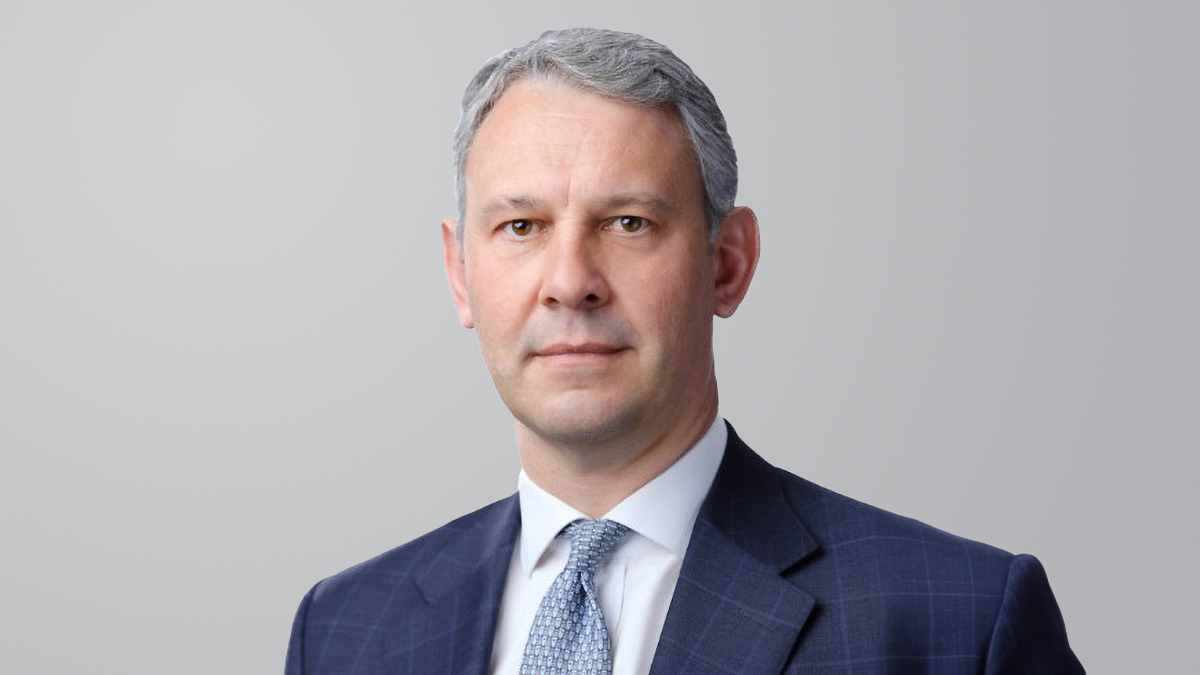Tokio Marine targets emerging economies in pursuit of long-term expansion
‘I'm very eager to grow our business outside of the US, as a long-term growth move, and the main targets will be in Asia and Africa,’ Tokio Marine’s Yamamoto says
Japanese insurer’s co-head of international business describes the cyclical nature of evolution and where the next avenues for growth lie
Tokio Marine Group draws more than 80% of its international profit from business in the US, but a key target for future growth is emerging markets, particularly in Asia and Africa, its co-head of international business, Kichiichiro Yamamoto, says.
One of the world’s biggest insurers, Tokio Marine has a market capitalisation of $61bn (as of March 31, 2024), a network encompassing Japan and 46 other countries and regions and more than 43,000 employees.
International business now provides 60% of its profits compared with less than 3% two decades ago. Profit in its international business for the 2023 financial year doubled year-on-year to nearly ¥437bn ($2.79bn) and the biggest performer by far was North America, which produced a 29.3% increase in profit to almost ¥360bn.
In an exclusive interview with Insurance Day, Yamamoto says he aims to “smooth out” the group’s geographical concentration of risk in Japan and the US through diversification into emerging markets, which he expects will make a “meaningful contribution” to its balance sheet in five to 10 years from now.
In its latest mid-term plan, unveiled last month, the group targets an increase in adjusted net income by a “7%-plus” compound annual growth rate by 2026. “We are confident in our ability to realise that goal, even after considering some softness that might come in the next three years,” Yamamoto says.
US property is “loosening up a bit”, but is still a hard market, as is US liability, owing to continued concerns about social inflation.
Yamamoto is not overly concerned about the prospect of social inflation spreading from the US to Europe. “US social inflation is not the product of the legal system only, but of political and social dynamics within US society. As such, it is a structural rather than cyclical event like an insurance market cycle or an economic inflation cycle. It will persist and there will be an impact on Europe, but I don’t see it being a serious challenge in the European market; at least, I don’t at present.”
Tokio Marine achieved “mid- to high single-digit rate increases on average” across all lines of business in the April renewals, he says, pointing out there are “signs of softening” in some areas. “We’re already incorporating that prospect into our mid-term plan, but our group takes a long-term approach to growth and expansion and so a change to a market cycle will not abruptly change our strategy,” Yamamoto says.
“In a soft market, we might be tighter on the underwriting. On the other hand, during a hard market we might be more aggressive, but we will still stick to our strategy and our strengths over a market cycle.”
Federation of subsidiaries
One of those strengths, he adds, is having a “federation” of subsidiaries, each possessing unique competencies in the market where they operate. “That gives us a resilience to market cycles, with less fluctuation in profit, even in a soft market.”
Two of those subsidiaries are Houston-based Tokio Marine HCC, which underwrites more than 100 classes of specialty insurance in more than 180 countries, and Tokio Marine Kiln (TMK), also a specialty insurer, which is one of only two insurers in the London market to be recognised for “outstanding” claims and underwriting service in 2024. The group aims to grow its specialty commercial business using these two existing platforms, Yamamoto says.
Tokio Marine is focused on generating revenue synergies “through collaboration, as opposed to just cost efficiencies”, he stresses. It has doubled revenue synergies over the past three years, hitting more than $600m in 2023, and this trend is expected to continue.
“In the mid- to long term, I’m very eager to grow our business outside the US and the main targets will be emerging markets, like Asia and Africa. It’s going to take time – probably five to 10 years – until we see a meaningful contribution from those areas but in the long term we would like to have more geographical diversity”
Kichiichiro Yamamoto
Tokio Marine Group
Yamamoto says: “The US is the market we can count on in the near term and I don’t see our high dependency on it as a risk because our portfolio is composed of different companies having unique strengths in each respective market. In the mid- to long term, I’m very eager to grow our business outside the US and the main targets will be emerging markets, like Asia and Africa. It’s going to take time – probably five to 10 years – until we see a meaningful contribution from those areas but in the long term we would like to have more geographical diversity.”
Emerging markets are, by definition, not yet mature enough to offer specialty niche products, so Tokio Marine will compete mostly in more standard lines, such as motor, homeowners’, commercial property and liability, personal accident and health, including the retail market.
Tokio Marine is not new to emerging markets. For example, it is among the top five insurers in Brazil, which Yamamoto describes as “our top star” in emerging markets, adding it contributed $250m to the group’s bottom line last year. Tokio Marine is the fourth-biggest insurer in Thailand, following its acquisition in 2018 of Insurance Australia Group’s business there. Also in 2018, Tokio Marine acquired a 22.5% stake in Hollard Insurance Group, which is based in South Africa but also operates in countries such as Ghana, Namibia, Mozambique and Zambia. Yamamoto says he is “watching with keen interest” the evolution of insurance markets on the African continent.
Three principles
Tokio Marine’s acquisition strategy is “patient and disciplined” and its assessment of each target company is governed by three principles: cultural fit, high profitability and solid business model. These principles are essential, Yamamoto explains, because the group’s philosophy is to keep an acquired company’s management team in place.
“We would not tolerate the group becoming disordered or fragmented and so we make sure that all our companies have governance, risk management and capital policies in common. Even more importantly, is having a common purpose, and that’s why it’s very important we are able to assess the cultural fit when we think about acquiring a company.”
Tokio Marine’s emphasis on cultural fit meant the Covid-19 pandemic interrupted its progress with merger and acquisition (M&A) activity. “We ended up doing no meaningful M&A in that period because we were unable to verify cultural fit by having in-person meetings with the management team of the target company. I know a lot of other companies did interviews through Zoom or Teams, but that was not something we could allow,” Yamamoto says.
 Tokio Marine Group head office, Toyko, Japan
Masayuki Yamashita/Alamy Stock Photo
Tokio Marine Group head office, Toyko, Japan
Masayuki Yamashita/Alamy Stock Photo
Tokio Marine’s large acquisitions have included US insurer Pure Group for $3.1bn in 2020. Yamamoto declines to name them but says there were “a lot” of potential M&A targets the group did not explore because of the pandemic. Nevertheless, the main criterion for acquisition targets in North America remains that they are in the commercial specialty business.
“There are several such companies in our pipeline right now but, in the recent market, what I see is a scarcity of good opportunities that meet our principles, and also the valuations, I would say, are quite high. We are looking for M&A opportunities and we always have a list of targets, which we renew periodically, but we are not in a rush. And I would like to emphasise we don’t need M&A to achieve the growth target we announced in the mid-term plan,” he says.
Yamamoto shares his role with Brad Irick, who led TMK for four years until he was succeeded in February by its chief underwriting officer, Matthew Shaw. Irick succeeded Chris Williams, who in April stepped into the new role of chairman of international business. In March Williams told Reuters Tokio Marine could potentially spend around $10bn on overseas acquisitions and is tracking public companies around the world.
Yamamoto emphasises two main benefits from M&A activity: a diversified portfolio and a diverse management team. Its acquisitions to date have given Tokio Marine a “global flavour” that would have been impossible for it to achieve by having a group of executives who are all Japanese. Highlighting Irick, Williams and Susan Rivera, chief executive of Tokio Marine HCC, he says: “We are all in alignment, believing we should expand into emerging markets for our long-term growth.”
In emerging markets, Tokio will grow by buying local insurance companies. “The size of these acquisitions will be in the millions, rather billions,” Yamamoto says. “I hope we will see a good opportunity we can really go forward and execute not far in the future,” he adds.
The company divides its international businesses between two co-heads – Yamamoto manages the US, Asia and Africa, while Irick oversees Australia, Canada and the UK – but it is a collaborative approach.
“The demarcation is a Western approach, but Brad and I discuss almost every important strategic matter and make decisions jointly, so in practice it is a collective effort, which is Japanese practice. The approach then is a hybrid of Western and Japanese management styles.”
Circular evolution
Established in 1879, Tokio Marine’s evolution has been circular rather than linear, he says. “It had already started doing business abroad in the year it was founded, opening offices in Busan in South Korea, Shanghai in China and in Hong Kong. The following year, it appointed agents to branches in London, Paris and New York. The company is 145 years old and so too is its international business because it has globalisation embedded in its DNA.”
Tokio Marine lost its global presence, however, because of Japan’s role in World War II and so, from 1945, it operated mainly as a property/casualty (P&C) insurer for the Japanese market and Japanese business international assets.
Yamamoto continues: “That was fine for almost four decades because the Japanese economy was growing rapidly and the motor industry was booming. In the late 1990s, however, we took another turn to start growing globally.”
That turn came from the increasing frequency and severity of natural catastrophe events in Japan. “We wanted to have more diversity, but we also realised to have sustainable growth we needed to expand overseas. At that time, our international business was only 3% but by the end of 2023 it was more than 60%. In a relatively brief period of time, we have evolved from a Japanese P&C insurer into a truly global company.”
Yamamoto joined Tokio Marine “straight from college” in 1985, when its business was “predominantly Japanese domestic”. For 30 of his 40 years at the company, he has played a role in the growth of its international business. Yamamoto credits his own international outlook to childhood years spent in London and San Francisco, where his father, an economics graduate of Oxford University, worked at a Japanese commercial bank. “I had a lot of good cross-cultural experience, which has helped me a lot throughout my career with Tokio Marine.”
His love of English soccer merges with the Japanese reputation for a long life. A member of his local football team for the “over-60s”, the prospect of still playing into his 80s would lead to recognition that harks back to old Japanese tradition. “If you’re still playing at over 80 years old, then the Japanese football association presents you with purple shorts, which goes back to the seventh century tradition of ranking civil servants into 12 grades,” Yamamoto says.
According to the Kan’i junikai system, purple denoted the “virtue” expected of the two highest ranks. The silk of their headdress was coloured by purple dyes from the murasaki plant, which is now a protected species.
Climate resilience
From protecting species to protecting societies affected by climate change, Tokio Marine last year launched a subsidiary for disaster prevention and mitigation. Tokio Marine Resilience Co addresses this critical social issue and accompanies other initiatives, such as the group’s collaboration agreement with the National Research Institute for Earth Science and Disaster Resilience, and the launch of the Disaster Prevention Consortium (CORE).
Tokio Marine sees climate risk in two ways. Yamamoto says: “Every insurance company is exposed to climate risk, which includes physical risks and transition risks. We’re comprehensively identifying and assessing climate-related risk, using both qualitative and quantitative approaches to make sure the exposures we are bearing are within the capital we can deploy. That’s because it’s important, from the very beginning, to be a responsible insurer, which can pay the claims we have committed to for our customers. To do that, we must make sure the exposures are within a manageable range.”
“We’re comprehensively identifying and assessing climate-related risk… to make sure the exposures we are bearing are within the capital we can deploy. That’s because it’s important, from the very beginning, to be a responsible insurer, which can pay the claims we have committed to for our customers. To do that, we must make sure the exposures are within a manageable range”
Kichiichiro Yamamoto
Tokio Marine Group
The second approach is to control risk capital by diversifying geographically and to buy reinsurance as a hedge against that risk. “Growing in emerging markets will be particularly meaningful in that context.”
Tokio Marine has a lot of experience of disaster response in Japan, such as to the Great East Japan Earthquake of March 2011, where it ensured the payment of valid claims and supported the affected communities with food and other emergency supplies. Yamamoto says this experience helped with the assistance Tokio Marine provided following the series of wildfires that broke out in Hawaii, predominantly on the island of Maui, in August last year.
Tokio Marine is rapidly expanding the range of coverage services it provides for both pre- and post-emergency situations. In climate resilience, Tokio Marine aspires to broaden the scope of product and service that a conventional insurance company typically provides. “Specifically, that is post-event risk financing, which means indemnifying economic loss through claims payments after an event, to help societies recover,” Yamamoto says. “That is not enough, however, to meet our full responsibility and so we aim to expand the scope of our business to pre-event activities, which means loss mitigation or loss prevention.”
Tokio Marine is investing in climate resilience in various ways, including planting mangroves “to produce more oxygen and also to offset tsunamis” and employing data from satellite technology. Iceye, the Finnish microsatellite manufacturer and operator, has collaborated with Tokio Marine since 2020 to develop new insurance products and services.
Yamamoto says such technology enables the insurer to better predict and then assess damage and thus pay out claims more quickly, but also to understand the support its customers need for recovery from a disaster.
He agrees the industry is moving from seeing climate risk as an exercise in risk transfer to one of risk reduction. “Through Tokio Marine Resilience, we are combining pre-event and post-event activities into a solutions business. Through that company, we are leading CORE, which now includes more than 100 companies from a variety of industries and sectors focused on disaster prevention and mitigation.”
He concludes: “What we’re trying to do is form a private sector disaster prevention ecosystem in Japan.”



